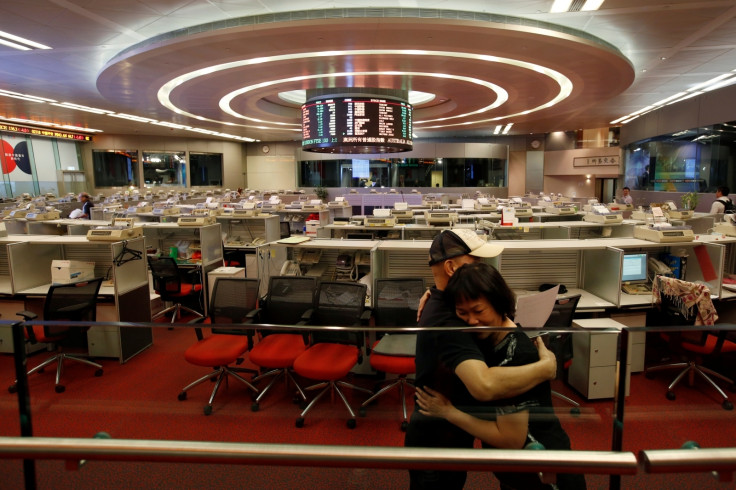End of an era in Hong Kong as stock exchange shuts up shop after 31 years
Hong Kong Stock Exchange was the place where Black Monday began on 19 October 1987.

It's the end of an era for the Hong Kong Stock Exchange, as trading on the physical floor ceased on Friday (27 October) after 31 years.
The hub, opened in 1986 when four exchanges were merged together, becomes the latest casualty of the shift towards electronic trading, which has seen trading floors in London, Singapore and Tokyo shut their doors in recent years.
At its peak, the trading floor, famous for its distinctive red carpet, hosted over a thousand traders wearing their trademark red vests.
In 2000, floor trading in Hong Kong still made up more than 20% of total turnover, while 14 years later it accounted for a meagre 0.3%, as the number of traders fell sharply to around 30.
The slow but steady decline had begun in 1996, when the first off-site order was sent, and accelerated in 2006 when renovations in the Trading Hall cut the number of desks from 906 to 294.
The trading floor witnessed some landmark moments, albeit not all positives. On 19 October 1987, it was in Hong Kong that the the infamous Black Monday began, before spreading to markets across the world.
The crisis sparked losses in global stocks and the Dow Jones Industrial Average recorded what still remains its largest one-day percentage decline, before the rout intensified the following week.
By the end of October 1987, the Hong Kong Stock Exchange had lost 45.5% of its value, while the FTSE 100 and Dow Jones indices lost 26.45% and 22.68% respectively.
Almost two decades later, the bell on the trading floor rang for one last time, but the few remaining traders had begun packing up operations earlier this month and the only thing left was a predictable sense of nostalgia.
"I'm going to miss the Trading Hall a lot," Catherina Lai, a director of the securities unit at Mason Group Holdings, who was one of the Hong Kong Stock Exchange's first floor traders, was quoted as saying by Bloomberg.
"I sat near the hallway, so a lot of people came over and asked me about the market."
Francis Lun, who began his career in the securities industry two decades ago, was also feeling sentimental about the decision to shut the Trading Hall.
"It's sad," he told the BBC. "You have to wax nostalgic about the good old days.
"I'm sorry to say that when automation began to affect the real world, at first I thought that drivers would be the first to lose their jobs, because if you have autonomous driving, you don't need a driver. But sadly it's the floor traders who lost their jobs."























